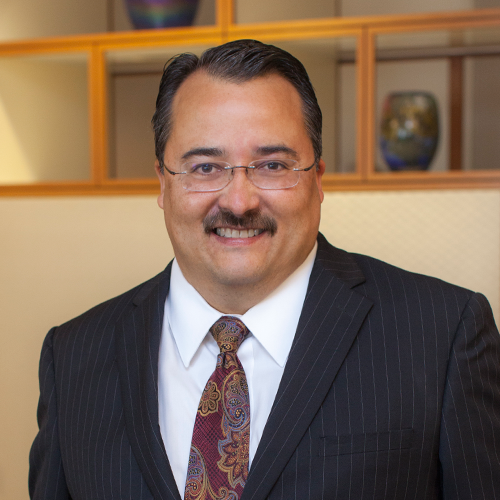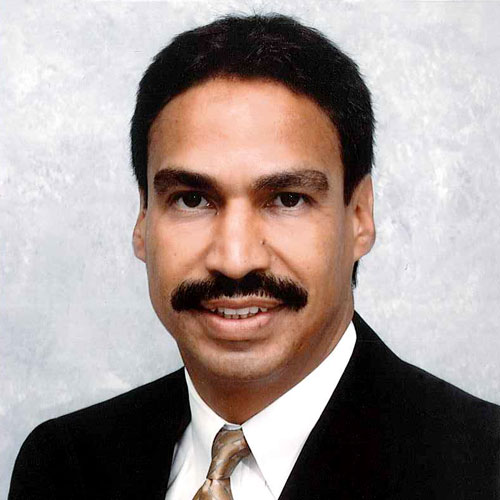Yasmine Winkler isn’t afraid to try new things. In fact, a willingness to take risks is characteristic of how she’s managed her career and has much to do with how she rose to her position as the central region CEO of UnitedHealthcare Community & State and chief consumer officer.
Her quick and effective adaptability has been useful in the sweeping reform underway in America’s health-care system. Just as Winkler’s career is defined by an openness to change, so too must the health-care industry be willing to create, innovate, and even disrupt.
For the past year, Winkler has been in charge of what she describes as “the mission-driven nature” of Medicaid insurance that the Fortune 50 health and well-being company includes among its many lines of business. “I’ve gone from working in the commercial side [employee plans] to the Medicaid side, returning to an area where I spent several years earlier in my career,” she says. Winkler has worked in the health insurance arena since graduating from college. “Returning here is much more visceral from a consumer perspective. It’s been very invigorating.”
With millions of new Medicaid patients enrolled nationwide as a result of the Affordable Care Act (ACA), UnitedHealthcare looks at a potential market of 55 million people who are now eligible for this coverage due to income at or below 133 percent of federal poverty guidelines.
But capturing this market won’t happen automatically. “We are a very heavily regulated industry that is also very fragmented,” she notes. “There are many new entrants to the industry, many disruptors, and technologies and new competitors.” Winkler ultimately sees this as a positive because it has prompted the company to investigate and implement some significant changes of its own. This includes technologies such as Health4Me, a mobile app that covers a range of needs for anyone seeking medical care, including, but not limited to 13 million UnitedHealthcare plan participants. It enables comparison shopping for hundreds of medical services; bill payment; and management of claims; and it provides health advice specific to a patient’s disease or condition, including phone contact with a qualified nurse.
This is the kind of innovation that flows from the disruption of how consumers approach their needs in general. Winkler points out that UnitedHealthcare has a built-in capacity—and compelling reasons—to evolve. “As a diverse company, we believe in innovation,” she says. “We have a venture arm and we acquire capabilities. I’ve led an innovation lab that takes into account how new medical technologies and pharmaceuticals affect care. Every new drug, technology, and procedure requires consideration from a reimbursement model perspective.” An example she provides is gall bladder surgery, which formerly required one to two weeks recovery in a hospital; today that’s down to one night due to minimally invasive laparoscopic surgical techniques.
Winkler shares that several ideas are birthed from, of all places, the financial-services industry. “Banks led the way,” she says. “They were at the forefront of pay-by-phone but health insurance is getting there.” She adds that Silicon Valley also is a source of innovation for medicine and the care industry, prompting UnitedHealthcare to consider these external factors as they do their own longer-term planning. “We have to look three, five, and seven years into the future.”
“Legislation has been a large catalyst for change in health care, historically.”
Winkler’s style is to charge forward, come what may. She remembers being in a leadership training program—at mid-career she earned a master’s degree from Dartmouth College in health-care delivery science—where a metaphor for her career was “a river of life.” She thought of the many twists, assignments, and promotions as serendipitous events that she drifted into along the way. Her husband, looking at it from a different perspective, told her she really was controlling that journey, being always willing to say yes to the next opportunity and tackle the next challenge.
Even before the ACA’s 2009 passage, there were many such influences on the health-care sector that required people like Winkler to say yes. “In my 32 years in this industry, there has always been tumultuous change,” she says, citing legislation that created health-maintenance organizations (beginning in the 1970s), the Health Insurance Portability and Accountability Act (HIPAA, late 1990s), and health savings accounts (early 2000s). “Legislation has been a large catalyst for change in health care, historically,” she points out.
Growing up in a multicultural household set her up to thrive in the type of environment she calls “organized chaos.” She is adept at applying her type-A personality to manage and weather chaotic conditions. She also credits her upbringing with “being good about turning things off,” pointing to how she’s managed to be present for her family, including three children who are now college-age and older.
A first-generation child of Cuban immigrants, Winkler identifies with individuals and families from diverse backgrounds—especially those newly gaining access to healthcare by way of expanded Medicaid coverage. She is very tuned into the preventive nature of health care, as well as the challenges of different cultures learning to use that access in healthy and cost-effective ways.
“We need to be patient,” she says. “Individual exchange open enrollment in 2014 was better than in 2013, and we anticipate that it will be even better in 2015. Legislative amendments are helping. There are new provisions, corrections, and clarification. We provide formal comments from our experiences in regulatory comment periods that help. This is not a one-and-done situation.” She notes that UnitedHealthcare provided coverage for preventive care long before the ACA, which provides financial incentives to get people started on better lifestyle habits.
To thrive in any industry where adapting to change is a constant challenge, Winkler advises to face the fear head-on. “It’s easy to take the regular road instead of the bumpy path of uncertainty,” she says. “And not everything works out. But you have to overcome your instincts to say no and, instead, say yes to things you don’t yet know you can do. I frequently took the bumpy road.”
In other words, a certain degree of fearlessness can go a long way.

